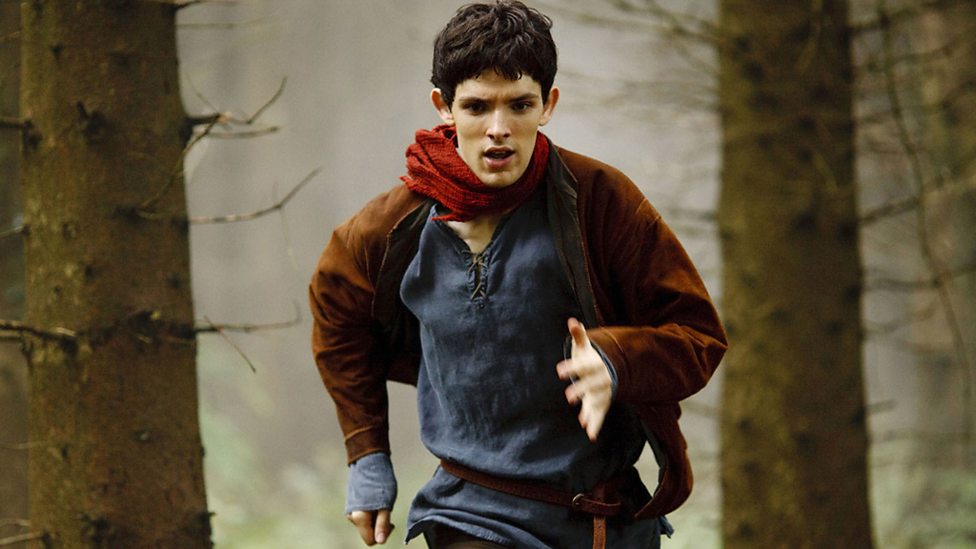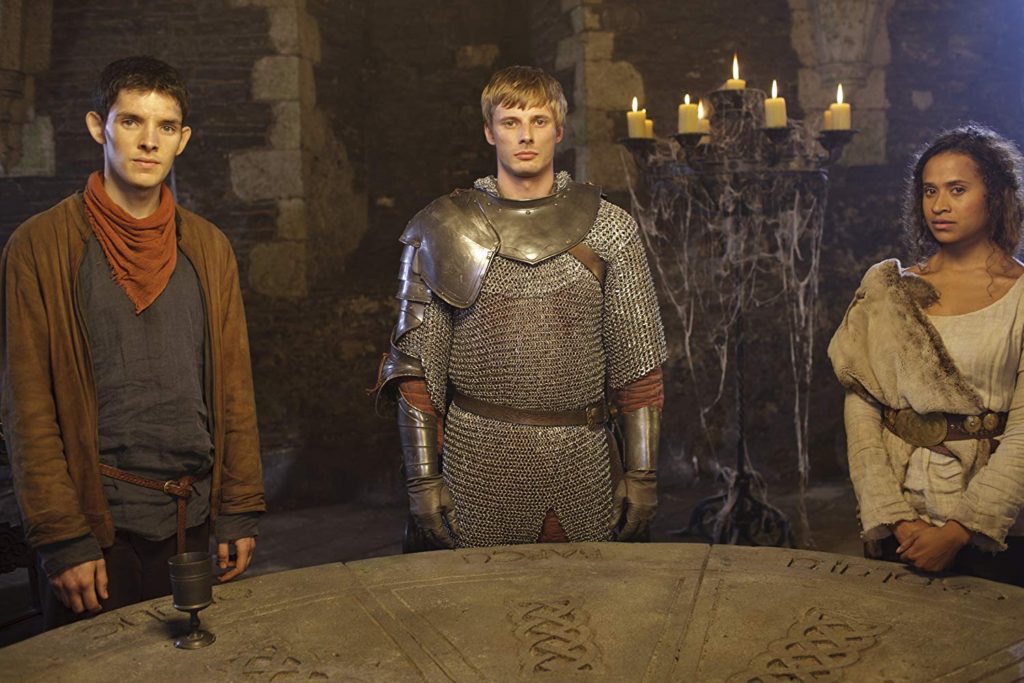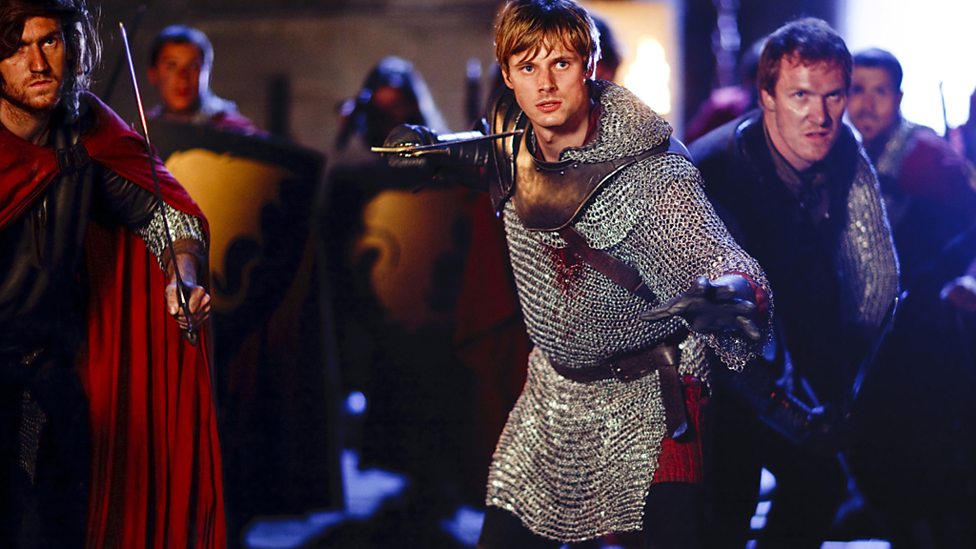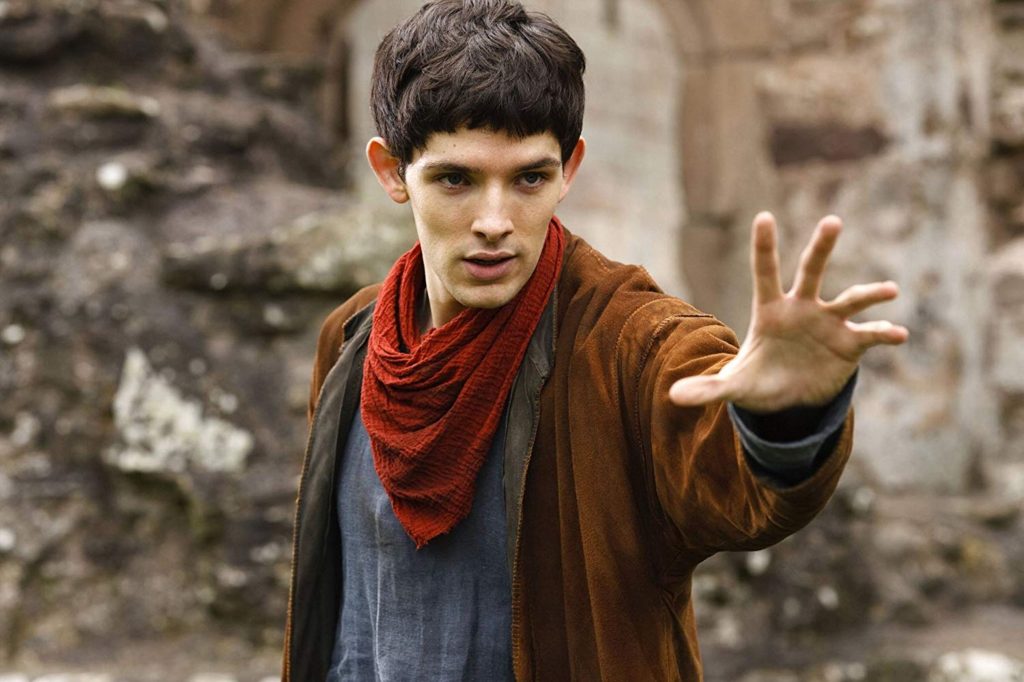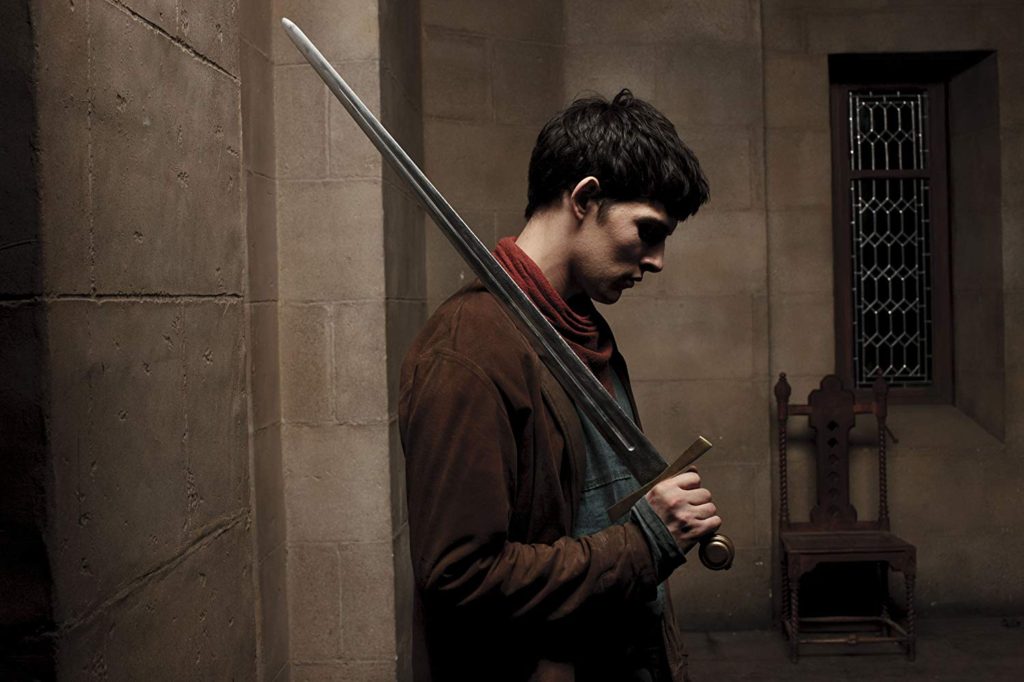I recently finished BBC’s Merlin series. It’s a wonderful TV show with a passionate fan base, but here’s the thing: It has a godawful ending.
As a storyteller, I think this series offers a valuable lesson that any writer — especially one who wants to craft emotionally-stirring, character-driven tales — should pay close attention to.
Here’s my personal diagnosis for why the ending of Merlin failed, and how writers can avoid The Merlin Problem in their own stories.
Why this matters
“Why write an article about a TV show that ended seven years ago?” you might ask.
Well, that’s valid. Perhaps this is old news. But here’s the thing: From a storytelling perspective, the series was truly amazing in so many other ways.
There is quite a lot that the writers got right: character arcs, character empathy and vulnerability, adorable friendships, enjoyable fantasy adventure, and more than anything, emotional impact. It’s the unforgettable kind of story that burrows into your heart and aches.
But when I reached the ending, I felt so emotionally violated and betrayed, I actually looked up the creators of the show on IMDB to make sure I never watched anything else they made. I did not want that experience again.
That is definitely not the reaction you want from a fan of your work.
And that made me pay attention. It unsettled me to know that a storyteller could get so many things right, yet leave their audience feeling like they’d been punched in the gut.
I did some deep thinking to determine what, exactly, was wrong with the ending of Merlin, to make sure I never, ever did that in my own writing.
This article is the result.
Quick disclaimer
Warning: This article contains massive spoilers for the BBC show, The Adventures of Merlin. I strongly recommend not reading this unless you’ve seen the entire series.
Seriously. I’m about to spoil the entire, five-series thing. You’ve been sufficiently warned.
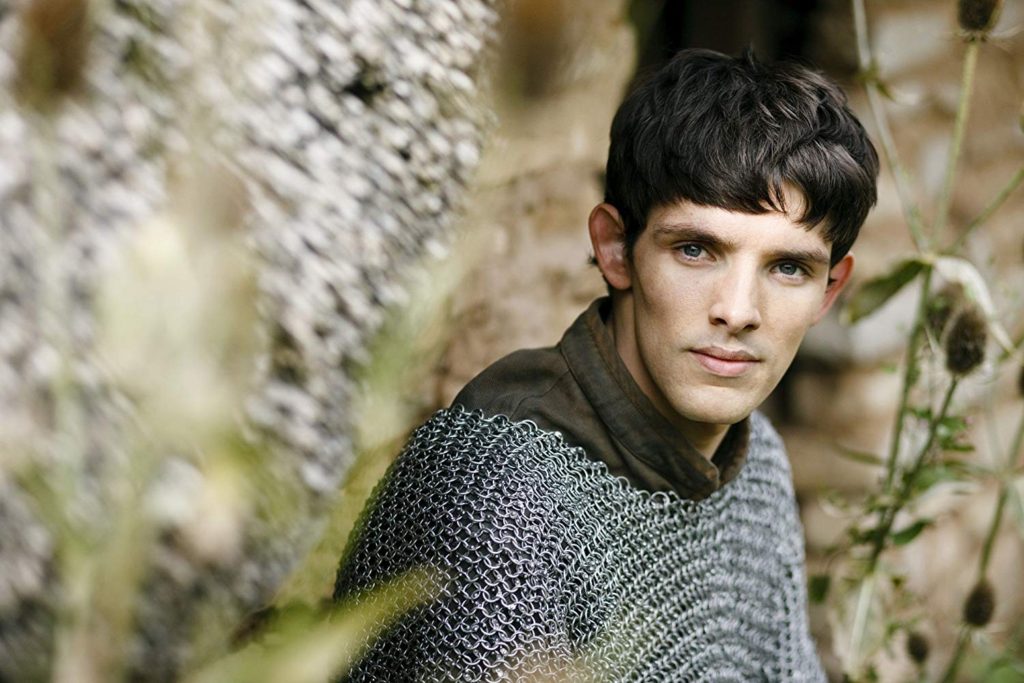
The story: A refresher
In case it’s been a while since you’ve seen the show, (or if you’ve the kind of person who likes to watch the world burn, and are spoiling this for yourself on purpose), here’s the basic rundown.
Merlin is a boy wizard living in Medieval Camelot. Unfortunately, he has to keep his amazing abilities hidden, because magic has been criminalized by King Uther — a complicated man who has a personal vendetta against magic.
By an unexpected, comical turn of events, Merlin ends up becoming personal servant to the crown prince, Arthur. At first, the two of them clash, but they soon form an unlikely, deep friendship.
Merlin learns that there is a prophecy: Arthur will become king and put an end to the reign of terror against magic. This is hard to believe at first, since Arthur has inherited a prejudice against magic-wielders from his father.
But here’s the important bit: Merlin must play a crucial role in making this prophecy come true. It is his destiny to protect Arthur, and help him become the future king that Camelot (especially its magic-wielding inhabitants) desperately needs.
These characters experience many adventures, in which Merlin uses magic to save Arthur’s life time and time again — always hidden, never getting the credit for his heroism. This is a heavy, painful burden for him (and for the viewers!!), but Merlin is spurred on by love for his friend, and by hope that all of it will be worth it one day.
One day, Arthur will become king.
One day, Arthur will overcome his distrust of magic.
One day, Arthur will bring freedom for Merlin, and for everyone like him.
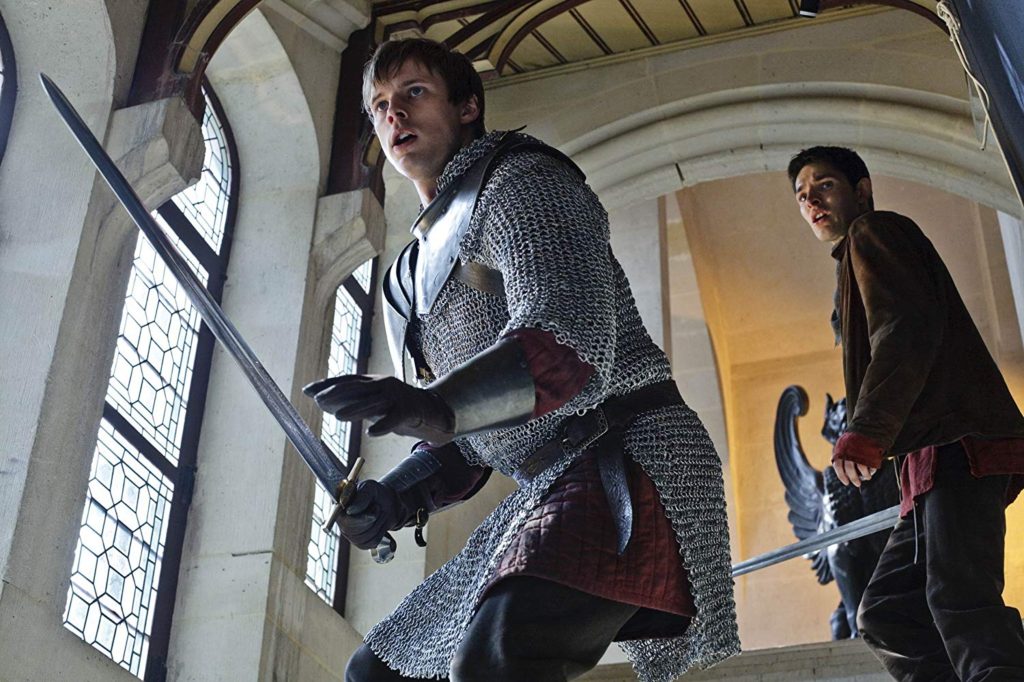
The ending
Okay, last chance to avoid spoilers.
Seriously, this is it.
Eventually, Arthur does become king. He still hasn’t changed the laws about magic, not completely, but it’s clear his mind is being changed… slowly. Agonizingly slowly.
There is another prophecy that speaks of Arthur’s impending death. This terrifies Merlin, and he does everything he can to prevent it from happening.
And yet, cruelly, everything Merlin tries backfires. Instead, he repeatedly sets in motion the very events he’s trying to avoid.
During a massive battle against the evil sorceress Morgana and her forces, Merlin uses magic to save the day. But he’s not fast enough.
Arthur is mortally wounded.
Merlin takes Arthur to the one place where he believes he can save his life. Along the way, tear-stricken, he ends up finally revealing to Arthur that he is a sorcerer.
Arthur is shocked, even betrayed and bitter at first — here was his closest friend, who suddenly feels like a stranger. But as Merlin desperately tries to get him to the place of healing, using magic openly along the way to keep them safe, Arthur softens, and realizes just how much he has been indebted to Merlin all along.
It’s a beautiful sequence — but then, at a short distance from the place of healing, Arthur gives a heart-wrenching thank you to Merlin, for everything he did all these years.
And he dies.
He just. fucking. dies.
Identifying the problems
The issue with this ending was not the fact that Arthur died. It is possible to have a major character die, and have the audience cry and grieve and proclaim, “What a beautiful story!”, rather than feel angry at the writers.
The flaws were in how and why Arthur died.
1. It felt like a defeat
You could argue that Merlin’s goal throughout the series was to protect Arthur, in the hopes that one day, Camelot would become a much better world for magic-wielders.
He was partially successful, in that he kept Arthur alive long enough to have a change in heart. And he did defeat their ultra-nemesis, Morgana, before it was all over. But still, he wasn’t able to protect Arthur in the end, despite doing everything in his power.
Merlin did all he could. But attempts to reverse prophecies backfired, again and again. No matter what he did, he couldn’t save his friend.
That wouldn’t have been so horrible, except for the fact that it was literally Merlin’s primary goal throughout the series.
The protagonist was set up to fail, which doesn’t make for satisfying storytelling at all.
2. It felt unnecessary and pointless
What did Arthur’s death accomplish? I can point to many other stories where major characters died in the end, and their deaths actually helped them achieve their goal.
Think of the movies Braveheart, The Gladiator, and even Titanic. In each of these cases, the deaths of major characters had a purpose. (Some may argue that point in Titanic, but still: The protagonist, Rose, reached the end of that story with victory and freedom from her previous, oppressive life.)
Not so with Arthur. He died because… fate? No satisfying reason was given.
Also, there was the unnecessary frustration of him dying close to salvation. Why? Just, why?
3. It was meaningless
In fantasy stories, there is often a lot of talk about “fate.” As audience members, we can allow a reasonable suspension of disbelief, and pretend like “fate” is a meaningful concept.
But deep down, subconsciously, we know there’s no such thing as fate in these kinds of stories — there is only the will of the writers.
We all know that real life has meaningless tragedy. But part of the reason we tell stories is to create meaning. The writers of BBC’s Merlin seemed to shirk the very expectations — and arguably, responsibilities — that come with being storytellers.
They did this throughout the series, too — just not in the ending. From Gwen’s pointless, painful betrayal on the night before her wedding (seriously, that episode made me ANGRY); to Merlin’s brief and heartbreaking love interest; to the random death of Merlin’s father right after he met him; the show is riddled with moments where emotions are drawn out, as if to just make the story longer, toying mercilessly with the viewer’s emotions just to get extra minutes. But none of these things accomplish anything for the plot.
Everything in a story should happen for a reason. Every episode or chapter, every scene, every line of dialog, should either move the plot forward or advance a character arc. Otherwise, it’s not a story, but a series of unconnected, meaningless events.
4. The execution was unbelievable
The writers spent all this time over five seasons establishing how excellent Arthur is with a sword. And then, Mordred just comes and… stabs him? With almost no effort whatsoever? He could have at least used the advantage of magic, which he possessed.
But no: Arthur was fated to die, so he died. That scene was just lazy writing.
5. Mismatch of promises
I saved this problem for last, but I think it’s actually the biggest one.
In any story, there will be subtle promises that the audience picks up on, often unconsciously. Whether or not these promises are made intentionally by the writer, they create deeply-held expectations for audience members about how the story will progress, and how it will end. Making good on these promises is crucial for maintaining an emotionally satisfied audience.
While it is, of course, good to surprise your audience with twists and turns, you must never break your promises.
In my opinion, this is exactly what happened in Merlin.
The first promise
Throughout the series, the story continually reinforces the following promise:
By the end of this story, Merlin will be free! Arthur will see him for who he really is! He’ll finally get some sort of credit for all the sacrifices he’s made, and all the pain he’s endured. Everything he’s done in service to Arthur — all the years of being unseen, unknown, and underappreciated — it will all be worth it!
By the end, well… this kind of happens.
The laws against magic finally do get dropped; or at least, it’s implied that they are. We never get to see the emotional impact of that change on the kingdom, though; we don’t get a chance to celebrate it. But technically, it happens.
And yes, Arthur does see and acknowledge who Merlin is. The two friends are finally equals (as they always should have been), and Arthur has a heart-wrenching moment of gratitude for all Merlin has done.
But it’s so brief, it seems to only barely count.
It’s not abundantly clear that it was “all worth it,” as promised.
The second promise
Furthermore, there was another implied promise. It was more subtle than the main one, but no less real. And it went something like this:
By the end of this story, Merlin will be at Arthur’s side and out in the open as a sorcerer.
Most viewers probably acknowledged to themselves that this wouldn’t happen until the finale of the series, but they still expected something like this to happen. It would have been perfectly satisfying to see Merlin become free, and to know that he and Arthur would continue on their adventures — as equals this time — after the show was over.
But the fact that Merlin himself only gets a small taste of this deeply-hoped-for-future is what makes it so painful. He’s the one we’re empathizing with, so his experiences are our own.
The emotional effect of all this is equivalent to making someone wait, and wait, and wait, and then finally giving them what they long for — only to snatch it away again immediately afterwards.
Seriously, you’d have to be an asshole to do that to someone.
Oh, wait… that’s exactly what the writers of this series did. HMMM.
How to avoid this as writers
I admit, I’m kind of scared. As someone who likes to play around with unexpected endings, I’m especially concerned about getting them right. I’m still learning how to do that, of course. One day, when I have multiple published books under my belt, (and I’ve made a few mistakes as a storyteller myself), I may return to this topic with further wisdom.
That being said, I’ve done a lot of deep, careful thinking about this topic. As a reader, viewer, and writer, here is my best, current advice for avoiding The Merlin Problem.
1. Make sure your protagonist wins, even if it isn’t the way they expect
It’s okay if winning comes with a cost, even a terrible one. In my opinion, this actually makes for the best kind of ending.
But in most cases — excepting horror, maybe — the protagonist needs to win. There must be an alignment of their primary goals and what happens in the end.
Could there have been an ending for Merlin where Arthur died and yet Merlin still won? Yes! If Arthur’s death hadn’t been so closely tied to Merlin’s own actions and failures, it would have been much easier to swallow.
2. Give all major deaths a point
Look, we’re not all George R.R. Martin. We can’t all pull off the random deaths — although if you want to write that kind of a story, make sure you establish early on in the book/TV show/movie that it’s that kind of story, and no one is safe.
Merlin did not at all establish it would be that kind of a story, so the viewers were primed (over five seasons, if I may remind you) to have all major deaths be meaningful sacrifices, or otherwise necessary costs in an ultimate goal.
Arthur’s death was neither of these things. That’s why it felt like a betrayal of the audience’s trust.
3. Keep consistency
If you have a character who is established as the best swordsman in your cast, don’t have him die easily to a comparatively amateur swordsman. Keep the actions of your world consistent with the expectations you’ve already established.
4. Frequently check your promises
Ask yourself periodically: What am I promising my audience right now? And do I plan to deliver on that promise?
If you’re unsure, get some outside perspective. Have someone else (or ideally, several someones) read your work, and ask them: What do you expect moving forward? What would disappoint or frustrate you, if it didn’t happen?
This is not to say you should be predictable! Audiences never want to know exactly what will happen, but they will always have a set number of expectations that, if left unfulfilled, will have them hurling the book across the room or deciding to never watch anything by you again.
In closing
Treat your audience with respect. They have invested time into your story, and they want a rewarding conclusion in return.
Surprise them, of course. Employ twists and turns. Shock them. Evoke visceral emotions. Make them laugh, cry, and rage — against the antagonists, never against you. Make them cheer for the heroes and hurt when they hurt. Give them a win that looks different than they thought, but make sure it’s still a win. Ensure that all the losses, pain, and failures are worth it in the end.
In short, don’t hurt your audience just to hurt them. That’s not good storytelling. It simply isn’t nice.
Image credits: All taken from IMDB.com.
You may also want to read

